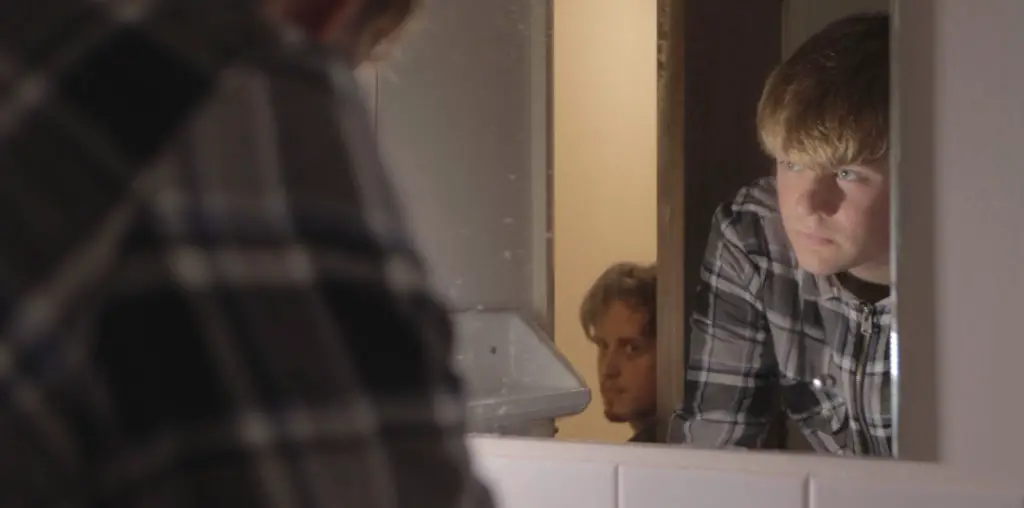
Audiences for “Into the Wild” will most likely end up in one of two camps: those who view Christopher McCandless – the 22-year old who abandoned his relatively well-to-do life and “tramped” through the American West, eventually dying in the Alaskan wilderness – as a spoiled brat who overreacted to an uncomfortable family life and petulantly fled to his eventual doom; and those who may not fully understand his motivations, yet still identify with his possibly misguided decision to get away from the things of man.
Count me among the latter. It’s hard to argue with the assertion that McCandless, who graduated from Emory University in 1990, wasn’t entirely thinking through his lifelong dreams of an “Alaskan Odyssey” in which he envisioned himself the heir apparent of Jack London and Henry David Thoreau. As portrayed in both Jon Krakauer’s book and by Emile Hirsch in the movie, there seems to be an almost deliberate naïveté at work in the young man. He rails against his parents when they offer him a new car for graduation, the final straw in what he sees as their lifetime of aimless materialism, then donates the remainder of his college fund ($24,000) to OxFam America, burns his credit and Social Security cards, and heads west in his battered Datsun. It’s a bold move, to be sure, but Hirsch’s wide-eyed handle on the character seems at odds with what we know of the guy, who was pretty well-informed about how cruel the world often is.
McCandless makes it as far as Arizona before a flash flood destroys his car and forces him to continue on foot. Christening himself “Alexander Supertramp” (admittedly, another reason to dislike the guy), he begins making the acquaintances of fellow fringe-dwellers like Jan and Rainey (Catherine Keener and Brian Dierker), two hippies traveling by bus through Northern California. Their relationship is tense, thanks to some unspoken problem, but “Alex’s” presence helps Jan warm back up, and the three form a lasting bond. Chris/Alex also spends some time working in South Dakota, where he meets Wayne Westerberg (Vince Vaughn), a small-time crook who would remain one of McCandless’ enduring friends.
The story is narrated by Chris’ sister Carine (Jena Malone), who serves to remind us of the anguish their parents (William Hurt and Marcia Gay Harden) go through after it becomes apparent their son has completely dropped off the grid. These family scenes also highlight how Chris’ absence ironically brings the previously estranged mother and father closer together than they’d been in years.
By the time McCandless finally makes it to Alaska, he’s already traversed the Western US. He’s reconnected with Jan and Rainey, visited and hastily abandoned Los Angeles, and befriended 80-year old Army veteran Ron Franz (Hal Holbrook). By now, “Alex’s” knack for becoming the surrogate son of practically everyone he meets (Franz even offers to adopt him) begins to grate. Yes, he’s subconsciously seeking the love he never got at home, we get it.
I admit, it’s hard to sympathize with McCandless’ basic misunderstanding of his literary idols. London made it a point to describe the brutality of the wild, and how one must suffer to survive, while Thoreau wasn’t exactly roughing it in his cozy cabin on Emerson’s land. McCandless’ romantic vision of a solitary life was, as he ultimately discovers, dangerously uninformed. In spite of, or perhaps because of, the fact he’s spent the bulk of his travels in warm climes, he’s ill-prepared for a lengthy stay in the frozen north, entering the wilderness with little cold weather gear, a .22 caliber rifle, and a book on local plant life.
But I can’t deny that McCandless’ story resonated with me. Maybe it’s because we were born and graduated college at the same time and had similar backgrounds, or maybe because some of the things he said echoed thoughts I’ve had, but I found myself wondering how I would have reacted to the same catalysts in my life; would they have goaded me to hit the road in similar fashion? Would I have eventually cast aside my hubris and returned home to my parents? Could I have done a better job of foraging in the wilds of Alaska?
And it’s a beautifully made film. Penn meticulously shot in the actual locations McCandless visited, and Eric Gautier’s cinematography is breathtaking, with many of the vast wilderness scenes are framed in such a way as to almost exclude Hirsch entirely, further emphasizing how solitary his trek actually was. A moving soundtrack by Pearl Jam’s Eddie Vedder further complements the film’s evocative nature.
The greatest road movies strike a chord within us, making us wonder what it would be like to ride a chopper across the country to New Orleans, or simply stick out a thumb and take our chances. “Into the Wild” didn’t make me want to eke out a living in an abandoned bus, but it did make me yearn – just a little bit – for my younger, less cynical days when there was nothing but open road ahead, and such a journey would not have been out of the realm of possibility.
